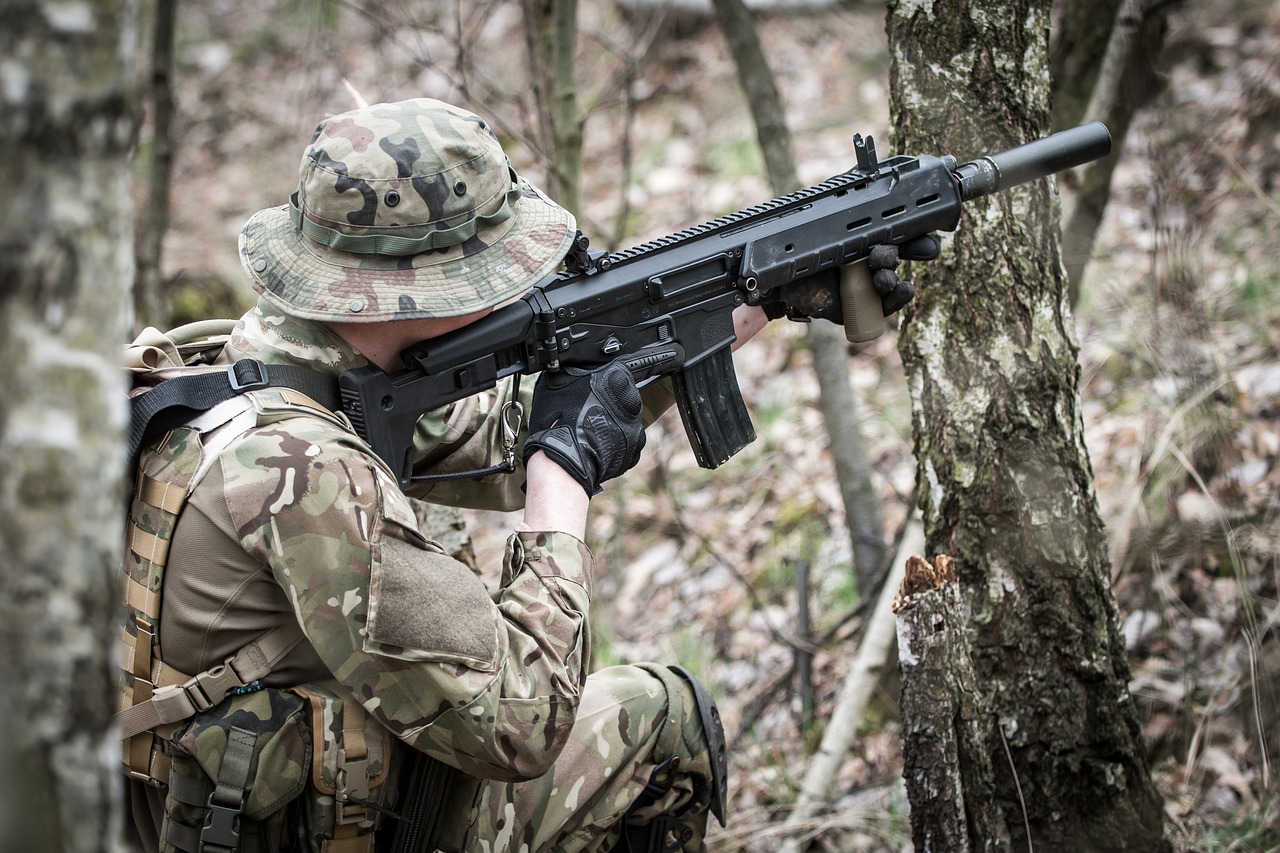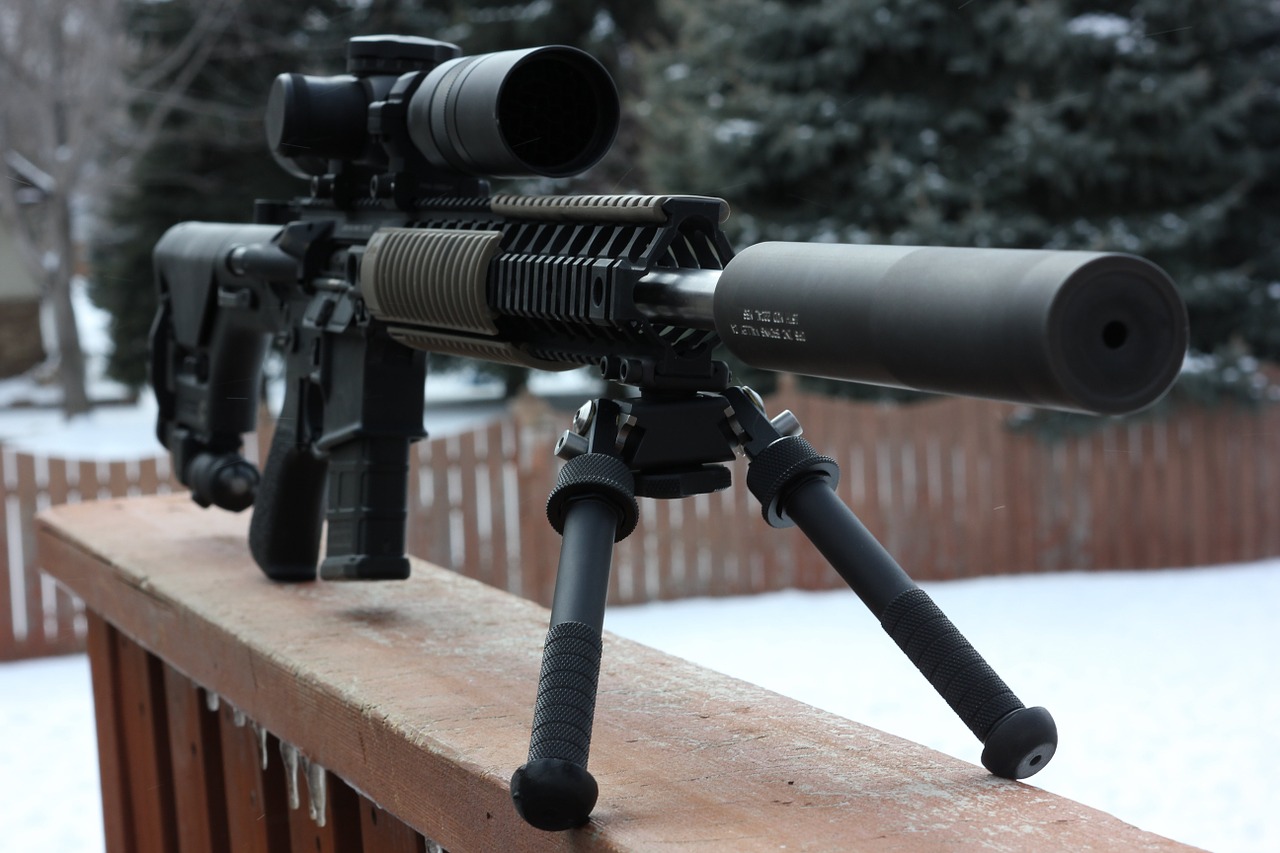States where Firearm Suppressors are Legal
Posted by Jessica Koenes on Dec 10th 2021
The best way to keep your gun quiet is with a suppressor. Find out where they're legal and which regulations you need for owning one in the U.S., then do some research before heading to your local shop!
Is using a suppressor for your firearms legal? How does owning one of these accessories benefit the gun owner, and what regulation does each state enforce regarding its use.
Firearm Suppressor
As one of the most heavily regulated products in the gun industry, you will need to do your research in order to obtain a silencer as a civilian.
Many avid firearm owners enjoy silencers saying that they protect shooters’ hearing. If you have ever been to a shooting range, you will see people with eye protection and ear protection. A small .22-caliber rifle can produce a sound over 140 dB and a large bore rifle or pistol can produce a sound up to 175 dB. Hearing loss starts to be a concern when exposed to noises greater than 140dB. The effects of continued exposure to firearms can lead to permanent hearing damage. But where in the United` States can I own a suppressor and what does it take to get access to one as a civilian?

soldier by tprzem from Pixabay
History
The suppressor was first invented by Hiram P. Maxim in the early 1900’s. The first suppressors could be found in hardware stores for and purchased for $3.23. Though the title of the item sounds like it silences all firearm noise, it actually only suppresses the sound so your ears are protected and the sound is not so loud.
The NFA came into play with silencers around the time of the Great Depression. People were put in extreme situations due to hunger and financial struggles, and people were concerned that poachers would use silencers to steal food, money, or goods. The National Firearms Act was passed and ever since then, there is a $200.00 tax stamp to transfer ownership of a suppressor.
Who Regulates Firearm Suppressors?
The National Firearms Act (NFA) of 1934 regulates silencers. They also regulate machine guns. It may seem complicated to own a silencer in the United States, but it actually takes less paperwork than buying a vehicle.
The first step to buying a silencer is finding out if you can own one legally. The federal law does not prohibit silencers. Where silencers are illegal within the United States, that has been determined by states.
The following are the states that allow private ownership of suppressors.
The owner just needs to make sure they comply with the NFA and the GCA.
- Alabama
- Arkansas
- Alaska
- Arizona
- Colorado
- Connecticut
- Florida
- Georgia
- Iowa
- Idaho
- Kansas
- Kentucky
- Louisiana
- Maine
- Maryland
- Michigan
- Missouri
- Mississippi
- Montana
- Nebraska
- Nevada
- New Hampshire
- New Mexico
- North Carolina
- Ohio
- Oklahoma
- Oregon
- Pennsylvania
- South Carolina
- South Dekota
- Tennessee
- Texas
- Utah
- Virginia
- Vermont
- Washington
- Wisconsin
- West Virginia
- Wyoming
The above listed states that allow civilians to own suppressors also allow hunting unregulated game with a suppressor. The only exceptions are Connecticut and Vermont. Be sure to research “unregulated game” such as varmints before you go out into the field.
With the remaining thirteen states not listed, California, Iowa, Massachusetts, and Michigan do allow the possession of suppressors for class three dealers and class 2 manufacturers.

sniper by benjaminwgr0 from Pixabay
The Process to Owning a Suppressor
Suppressors are not considered as relaxed as other firearm accessories. As mentioned before, silencers are regulated by the NFA. You must comply with their regulations and get the proper documentation to own a suppressor.
In order to own a suppressor, you have to be the following:
- 21 or Older
- Resident of the United States
- In a State that Allows Suppressors
- No Felony Records
From there, you will want to locate a Class 3 dealer who can order a suppressor for you or has one in stock that you are interested in purchasing.
Once you have the seller and specific silencer lined up, you are required to fill out an ATF Form 4. You will also want to have new passport photos taken to submit with your paperwork.
You will need to get two finger print forms completed and signed by a Law Enforcement agency. Pro tip: call ahead to set up an appointment. They usually appreciate the heads up and it will save you some time.
Once all your paperwork and fingerprints are in order, it needs to be sent to the Department of the Treasury with a check written out for $200.00. They call the fee a transfer tax and claim the $200.00 helps with the cost of transferring the ownership from a dealer to you. It normally can take 4 to 6 months to receive the approved, stamped paperwork from the NFA Branch.
Conclusion
In conclusion, make sure you are a U.S. citizen, you live in a state that allows suppressors, you are over 21 years of age and you contact a Class 3 dealer if you are interested in owning a suppressor. It is a privilege that many other countries do not allow. It may even help save your hearing.
References:
https://www.silencershop.com/where-are-they-legal
https://www.advanced-armament.com/ownership-information.html
